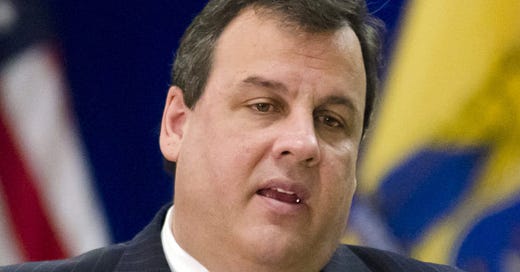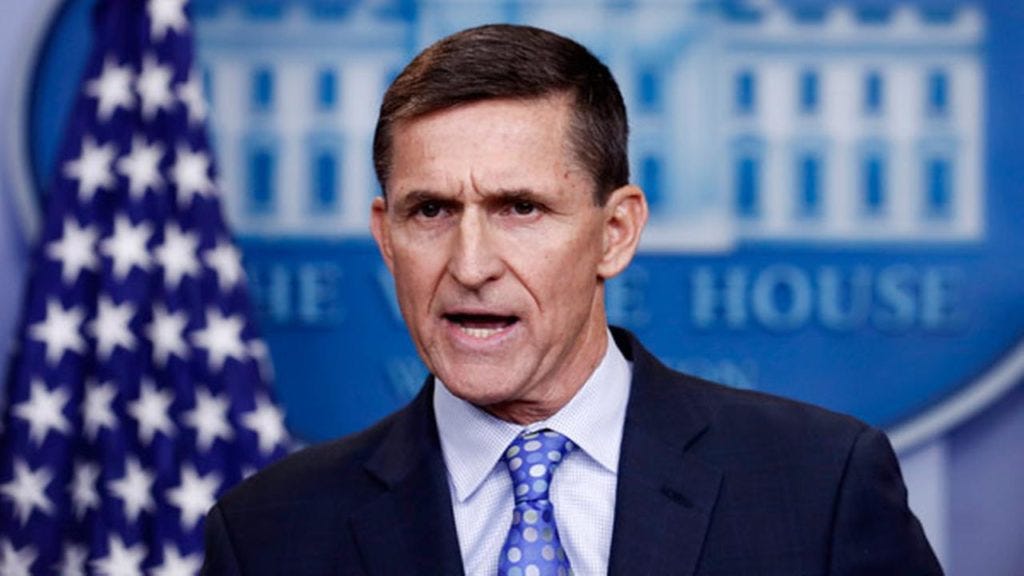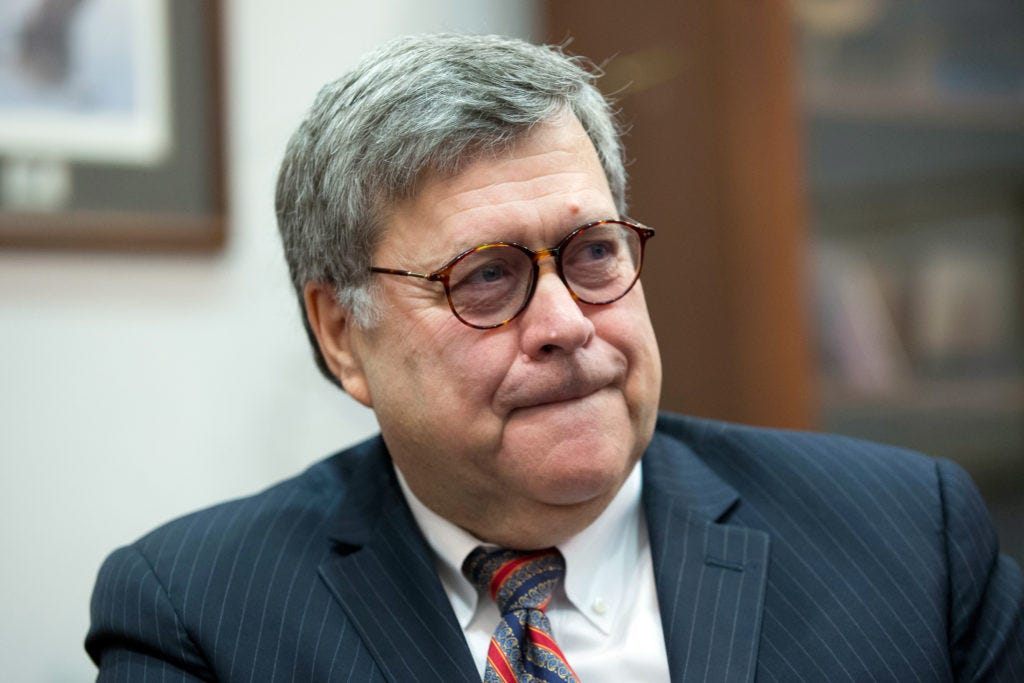Bridgegate and Flynngate
Last Thursday was an eventful day in the white collar world. In the morning the Supreme Court decided Kelly v. United States, the “Bridgegate” case, a significant ruling concerning the scope of federal mail and wire fraud. Then in the afternoon came word that the Department of Justice had moved to drop the case against Trump’s former national security advisor Michael Flynn. The Bridgegate decision was not a surprise, and I think the Court got it right. As for the Flynn case, DOJ’s action was deeply troubling and, frankly, dishonest -- the latest demonstration of Attorney General William Barr's politicization of the DOJ.
The Bridgegate Decision
The facts of Bridgegate are familiar by now. In September 2013, officials at the Port Authority of New York and New Jersey closed two of the three inbound lanes on the George Washington Bridge that spans the Hudson River between New Jersey and Manhattan. This caused several days of severe traffic gridlock that paralyzed the town of Fort Lee, New Jersey. School buses were unable to transport students, first responders had trouble responding to calls, and tens of thousands of commuters were stuck in hours-long traffic jams.
When the incident was investigated, officials falsely claimed they had closed the lanes to conduct a traffic study. The true purpose was to punish the Democratic mayor of Fort Lee for refusing to endorse then-Republican Governor Chris Christie for re-election. The scandal caused severe political damage to Christie, who once had presidential ambitions. Christie himself was not prosecuted, but federal prosecutors did charge his Deputy Chief of Staff Bridget Anne Kelly and Port Authority official William Baroni with fraud for their role in the scheme. They were convicted at trial and sentenced to prison.
The issue in the case was never whether or not the defendants had misbehaved. Everyone agrees their actions were deplorable. The issue was whether it was criminal, and in particular, whether it was federal fraud. In a unanimous opinion by Justice Kagan, the Court ruled it was not.
Before 2010, prosecutors almost certainly would have charged this case as honest services fraud. That popular theory charged defendants with scheming to deprive victims of the intangible right of fair and honest services that they were owed by someone – most often by a public official. The theory was used to prosecute a wide range of political misconduct that was not necessarily otherwise illegal. But in the 2010 case of Skilling v. United States, the Court ruled that honest services fraud must be limited to cases involving the payment of bribes or kickbacks – core corruption. There were no bribes or kickbacks involved here.
With honest services fraud off the table, prosecutors chose to charge the bridge-closing scheme as wire fraud and federal program fraud. Those fraud statutes require proof that the defendant sought to deprive the victim of money or property. Prosecutors had two different theories. The first was that the defendants had “commandeered” the bridge lanes to carry out their scheme and had thereby deprived the Port Authority of its property. The second was that the defendants had deprived the Port Authority of the salaries of the employees whose labor was necessary to execute the scheme, such as those who manned the toll collection booths.
The Limits of Fraud
The Supreme Court rejected both arguments. The Court first held the defendants did not deprive the Port Authority of property by shifting the bridge lanes. It relied primarily on a 2000 case called Cleveland v. United States. In Cleveland the defendants were convicted of defrauding the state of Louisiana when they obtained video poker licenses by lying on the license application forms. The Court threw out those convictions, holding that an unissued license was not property in the hands of the state and so could not support a fraud conviction. The state’s interest in the unissued licenses was a regulatory interest, not a property one.
The Court in Bridgegate held that the same was true of the bridge lanes. The Port Authority was not deprived of any property; it still controlled the lanes and collected the tolls. All the defendants did was re-allocate the use of the lanes by different drivers. Like issuing a license, that is a government regulatory power, not a property interest. Even if the defendants made that decision for a bad reason and lied about it, that did not deprive the Port Authority of property for purposes of the fraud statutes.
The Court likewise rejected the claim that the defendants had deprived the Port Authority of the salaries of the employees who carried out the scheme. Those employees were still doing the work they were hired to do, moving cones and collecting tolls. If the defendants lied about the true reason for having the employees carry out particular tasks, that was not enough to constitute fraud. The object of a fraud scheme must be to obtain money or property; here the object was to create a traffic jam. Salary payments to Port Authority employees were merely incidental side-effects of that scheme. For the payment of those salaries to constitute a fraud, the defendants would have had to order the employees to perform some personal task for them unrelated to their Port Authority duties. That was not the case here.
Not All Misconduct Is Criminal
Bridgegate was the latest example of federal prosecutors trying to use expansive fraud theories to pursue political misconduct that was not otherwise clearly criminal. The Bridgegate defendants did not use their public positions for personal financial gain, as in a bribery case. Closing the lanes was not otherwise illegal our outside of their authority. They just lied about why they were doing it. But politicians routinely lie – or more politely, engage in “spin” – about why they are taking actions that are otherwise within the scope of their duties. Without more, such political misconduct is usually not considered criminal.
Even if the conduct here could have been criminal, the Court said that was a matter for New Jersey state authorities, not the federal government. The Court expressly noted it was possible New Jersey criminal remedies could apply, and that “federal fraud law leaves much public corruption to the States (or their electorates) to rectify.” Even absent a state prosecution, the state’s residents have remedies at the ballot box and can exact political penalties, as they did by tanking Governor Christie’s career. But ever since the McNally case first rejected the sweeping honest services fraud theory in 1987, the Court has been wary of allowing federal prosecutors to use federal fraud statutes to set “standards of disclosure and good government for state and local officials.”
I’ve been critical of a number of the Court’s recent public corruption decisions, but I think they got Bridgegate right. This was bad and harmful behavior, but it wasn’t federal fraud. If the case had gone the other way, then almost any case of state or local political mischief could be the subject of a federal criminal prosecution, because there will almost always be a salary paid to someone in connection with it. Federal prosecutors should not try to stretch fraud theories to cover local political hardball that can be handled at the local level, either by state prosecutors or by the voters. More broadly, I think Bridgegate was one of several recent high-profile cases where the appropriate remedy was probably not a criminal prosecution.
The Flynn Motion to Dismiss
In last Thursday’s other news, the government filed a motion to dismiss the criminal case against former national security advisor Michael Flynn. Flynn pleaded guilty in December 2017 to lying to the FBI about his contacts with the Russian ambassador on behalf of the incoming Trump administration. He cooperated extensively with the government during the Mueller investigation. But in 2019, after the Mueller probe was completed, Flynn changed his mind. He fired his attorneys from the top D.C. law firm of Covington and Burling and hired Sydney Powell, a vocal DOJ critic and Fox News regular. She began an aggressive campaign to withdraw Flynn’s guilty plea and have the case dismissed based on alleged government misconduct.
Attorney General Barr recently appointed the U.S. Attorney from St. Louis, Jeff Jensen, to review the handling of Flynn’s case. Now, reportedly on Jensen’s recommendation, Barr has decided DOJ should drop the Flynn case altogether and that it never should have been brought in the first place. But the government’s arguments in support of this motion to dismiss are dishonest and disingenuous.
Flynn pleaded guilty to one count of false statements, 18 U.S.C. 1001. DOJ now claims it doesn’t believe that Flynn’s false statements were material. Materiality is a very low bar. To be material, a false statement does not need to actually affect any government decision, it only needs to be the type of statement that has the potential to do so.
DOJ says that Flynn’s lies about his contacts with the Russian ambassador could not have been material because the FBI did not have a legitimate reason to interview him. At the time of Flynn’s interview, the FBI was conducting an investigation, code-named Crossfire Hurricane, into the Trump campaign’s contacts with Russia and Russian interference in the election. It had a separate, related investigation into Flynn and his own Russian contacts, code-named Crossfire Razor. Having found nothing incriminating, the FBI was preparing to close Crossfire Razor when it learned about Flynn’s contacts with the Russian ambassador on behalf of the president-elect. In light of that new information, the FBI decided to keep the investigation of Flynn open until it could interview him about those contacts.
Flynn’s supporters have characterized this sequence of events as nefarious and as evidence that Flynn was “set up.” And DOJ has now said it basically agrees. It claims that, having decided to close the Flynn investigation, there was no good reason for the FBI to interview him, even after learning the new information about his conversations with the Russian ambassador. And because the interview was therefore not properly predicated, DOJ says, any lies that Flynn may have told could not possibly have been material.
Flynn's Statements Were Material
This is nonsense on several different levels. First, whether or not the FBI had properly opened or closed an internal case file has nothing to do with whether Flynn lied about something that matters. If the FBI screws up some internal docket entry it doesn’t mean a witness gets a free pass to lie. I don’t know of any case where a false statement to the FBI was found not to be criminal because the interview was not “properly predicated.” Why the FBI is talking to you and whether you choose to tell material falsehoods are completely unrelated.
Second, you don’t have to be investigating someone personally to have a reason to interview them. Even if the FBI believed Flynn himself was not a security risk and they should close their file on him, there would still be reason to talk to him in connection with Crossfire Hurricane. It would be an odd investigative world where the only people the FBI was allowed to speak to were those who were personally under investigation. People who are interviewed and are not under investigation are known as “witnesses.” And Flynn was, at the very least, an important witness to Trump-Russia contacts who needed to be interviewed.
Whether or not the Crossfire Razor file was properly open or closed, the FBI had every reason to talk to Flynn as part of the broader Crossfire Hurricane investigation. Remember, the focus of that investigation was Russian contacts with the Trump campaign. Flynn had been a part of the campaign, and the FBI had just learned that he had recent contacts with the Russian ambassador. How could the agents possibly ignore that?
Flynn lied to the FBI by denying he asked the Russian ambassador not to retaliate based on the sanctions the Obama administration had imposed on Russia in December 2016. Why was he having that conversation? Who asked him to do it? Was there a possible link between the incoming administration promising to ease up on Russia and the Russian help for Trump during the election? There’s no question the FBI had a good reason to talk to Flynn, and that Flynn’s lies about his conversations with the ambassador had the potential to influence the FBI’s fledgling investigation into the Trump-Russia connection. That’s all that materiality requires.
What’s more, Judge Emmet Sullivan, the judge in Flynn’s case, has already ruled that Flynn's statements were material. He made that ruling when denying Flynn’s earlier motion to dismiss based on alleged government misconduct. But the government now says (in a footnote) that doesn’t really count because the judge didn’t have all of the relevant facts before him – even though nothing in the government’s motion to dismiss should come as any news to the judge, and none of the supposedly "new" facts affect materiality.
The government also now claims, somewhat half-heartedly, that Flynn’s answers were not clearly lies, that they were “equivocal” or “indirect.” Again, this flatly contradicts both the evidence in the case and the position taken by the government for the past two years. And Flynn himself has admitted under oath – twice -- that he knowingly lied to the FBI. But as with Judge Sullivan, prosecutors now suggest that Flynn didn’t really know what he was doing.
As I wrote in my Washington Post column about the Flynn motion:
So to sum up: The government claims it cannot prove materiality when the judge has already ruled the lies were material, and the government says it cannot prove Flynn lied when he has already admitted twice that he lied. Such a bizarre argument could be put forward only in a Trumpian world where facts truly don’t matter.
The Politicization of the DOJ
The reaction by former Department of Justice officials to the Flynn motion has been almost uniformly negative. Former U.S. Attorney Chuck Rosenberg wrote in the Washington Post that there’s a long list of people who thought Flynn’s lies were material – including Trump himself. Mary McCord, Assistant Attorney General for National Security at the time of Flynn’s interview, wrote in the New York Times that the investigation and interview of Flynn were entirely appropriate and justified, that his lies were material, and that DOJ had wrongly twisted her words in the motion to suggest otherwise. Jonathan Kravis, one of the career prosecutors who resigned from the Roger Stone case when Barr intervened at Stone’s sentencing, wrote that the Flynn motion to dismiss was another “disastrous mistake” highlighting the politicization of the DOJ. And more than two thousand former DOJ officials of both parties signed an open letter protesting Barr’s actions and urging Judge Sullivan to scrutinize them carefully.
This Flynn motion is similar to the Roger Stone incident in a number of ways. In both cases, the career prosecutors assigned to the case withdrew in protest after they were undermined by the Attorney General’s intervention. In both cases that intervention was signed off on by acting U.S. Attorney for D.C. Timothy Shea, a longtime Barr aide who was recently installed to replace the former U.S. Attorney Jessie Liu. Both incidents involved attempts to undermine or discredit cases brought by the Trump’s nemesis, special counsel Robert S. Mueller. And both involved personal intervention by the U.S. Attorney General to benefit political allies of the president, in ways that would never happen with an ordinary defendant.
It will be very interesting now to see how Judge Sullivan acts on the motion. He has a number of options. The rules say the case may be dismissed only with “leave of court.” It would be rare for a judge to buck a prosecutor’s decision to drop a case – but this is far from a typical case. Judges don’t like to be manipulated, and you can imagine Judge Sullivan demanding that DOJ officials explain in person what exactly changed that caused them to drop a case they had defended for two years. As a sign that this may not be over, on May 12 Judge Sullivan issued an order essentially inviting outside parties to file amicus brief about what he should do. A group of sixteen former Watergate prosecutors has already filed a motion seeking permission to do so.
Regardless of the outcome, this is an outrageous and disheartening demonstration of the current rot at the Department of Justice. It’s more clear than ever that Barr sees his role as protecting the president and manipulating the justice system to benefit Trump’s political cronies. There is one brand of justice for the president’s friends, and another brand for everyone else. Barr's decision also protects Trump from taking the political heat that would come if he were to pardon Flynn; instead, Barr will simply drop the case while claiming that's what justice requires.
This latest incident makes one fear what else is coming. You can almost guarantee that between now and the election there will be reports “revealing” that the entire Mueller investigation was a hoax and an attempt by the FBI and the Obama/Biden administration to take down Trump. And I wouldn’t be surprised to see the announcement of some kind of criminal investigation of Joe Biden or his family. As others have pointed out, for an authoritarian the first step is using the justice system to benefit your friends. The next step is using it to investigate and punish your enemies.
That’s why what is happening is so frightening – and so dangerous.






